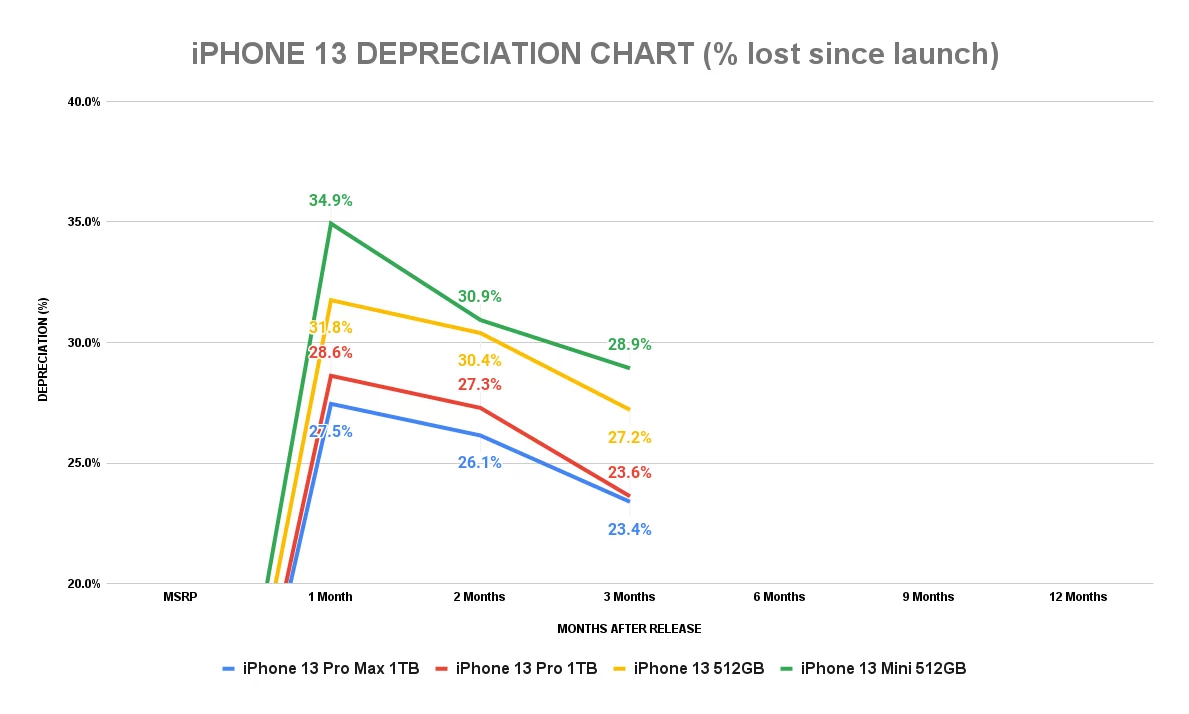
The iPhone 13 lineup depreciates in value at almost half the rate of the Google Pixel 6, according to research by SellCell.
The Pixel 6, Google's latest flagship smartphone, launched just two months after Apple's iPhone 13 lineup. Despite being touted as a leading Android competitor to the iPhone, the Pixel 6 suffers from considerably worse depreciation.
In the first month after launch, all of the iPhone 13 models depreciated by 24.9 percent on average. The Pixel 6 models, on the other hand, lost 42.6 percent of their value on average. Since then, the iPhone 13 has regained some of its value, with a recovery of 3.1 percent of its value since the first month. Overall, the iPhone 13 models are holding their value significantly better, leading to minimized losses for customers looking to sell their new device.

Looking at the most low-cost options in the respective lineups, the 128GB Pixel 6 lost the least value of all of the Google models with depreciation of 36.6 percent. This compares to depreciation of 26.9 percent for the 128GB iPhone 13 mini, which is among the least popular iPhone models.
Last month, it was reported that the iPhone 13 models were holding their value much better than any previous iPhone in the period after launch. Going into December, the iPhone 13 has shown continued buoyancy with the lowest depreciation rate in the entire smartphone industry. That being said, the Pixel 6 is still early in its release and the coming months will present a clearer picture of the depreciation contrast between it and the iPhone 13.
SellCell's research is based on data from 45 buyback vendors. See the full report for more detailed information.
Article Link: iPhone 13 Depreciates Half as Much as Flagship Android Rival

